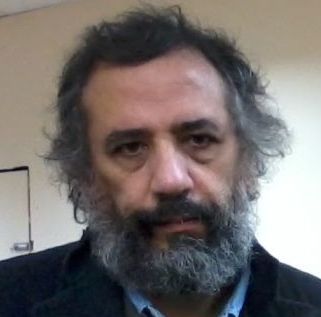


 By VennerRoad, 25th Jan 2018
By VennerRoad, 25th Jan 2018
The international Rape Crisis network presents itself to the world as a sort of one-stop shop for victims of sexual violence. In reality it does far more harm than good, if it does any good at all.

And any good it may do can be done more directly with less risk of convicting the innocent, and without pandering to the whims of mentally disturbed, confused, or simply malicious women.
The first rape crisis centre in London was set up early in 1976, but that was not the first ever. Sydney, Australia also appears to have been a hotbed of second wave feminism and somewhat ahead of the English capital, because the first rape crisis centre there was established in 1971. Washington D.C. saw a centre open in 1972. Today, there are rape crisis centres literally all over the world including Africa and India. But what do rape crisis centres do?
You can find sundry videos on YouTube and other social media sites; these explain their methodology in simple language.
This video is about Oxford rape crisis centre; it was uploaded to YouTube on July 27, 2013 and in four and a half years had attracted less than a thousand views. Take particular notice of the rhetoric of the smiling inteviewee: every city should have a rape crisis centre, and we are terribly under-funded. Then there is the usual cant about victim blaming. Does telling a woman not to get drunk and walk down a dark alley or get into a car with a strange man really amount to victim blaming, or is it just common sense advice? Would any mother tell her daughter these are sensible things to do? Best to ignore her comment about Jimmy Savile.
The advice given about sexual assault referral centres is tantamount to an invitation to a miscarriage of justice:
“If you’re not sure whether you want to report to the police yet, you might choose to go directly to a Sexual Assault Referral Centre...At the SARC, you can have a forensic medical examination, as well as tests for Sexually Transmitted Infections...The SARC should not pressure you into reporting to the police and they can store the results of the forensic examination (or evidence) until you make up your mind whether to report to the police or not.”
The London network, known as The Havens, tells visitors to its website:
“We’re here to help you if you’ve been raped or sexually assaulted in the past 12 months.”
While it is of course sensible for a rape victim to obtain medical treatment including testing for sexually transmitted diseases, a rape should be reported at once, even if a woman only thinks she might have been raped. It can happen that a woman may not realise or may not be sure if this has happened, and in this connection we should mention the extreme case of John Worboys. However, a woman who has been raped and knows she has been raped should go at once to the police. What happens when women delay reporting? Let us look at a few real life examples.
In 2002, Andrew Bond met a young woman in a bar, they went back to his place, and had sex. Regretting the encounter instantly, she fled his apartment and went to a relative who lived nearby saying she’d been raped. The police were called, Mr Bond was arrested, charged, and sent for trial. Just before the trial was about to open, a member of his legal team found CCTV evidence that showed his accuser pulling her knickers out of her handbag and tearing them. The case was dropped.
Now imagine what would have happened had this woman attended a SARC, had forensic tests that proved intercourse had taken place, then she waits for six months or a year before reporting to the police. By that time the CCTV evidence would likely have disappeared. Normally a rape allegation of this nature is she said/he said, but now we have she said plus forensic evidence versus he said. Why would this poor woman lie? If the accused denies having sex, as some foolish men do, his goose is cooked. When he was accused of raping a woman with whom he’d had a consensual relationship, police officer Peter Solley denied there had been any sexual contact until DNA evidence proved otherwise. He ended up facing no fewer than nine counts of rape. Fortunately, his accuser had so little credibility that he was acquitted; she claimed he’d raped her three times then she had embarked on a consensual relationship with him.
Any juror who would swallow that shouldn’t be sitting on a jury.
Another woman who delayed reporting her phantom rape was Eleanor de Freitas. Her case and that of Alexander Economou, the man she tried to frame, was discussed here in depth. He was not the first man she had falsely accused; imagine what would have been the outcome if the duplicitous Miss de Freitas had attended The Havens instead of a police station and had delayed reporting for a whole year until the CCTV evidence of the two of them shopping together had been taped over or destroyed.
Another false allegation refuted by CCTV and other evidence was also discussed here, that of the Spanish teenager in Bedford who had a sordid encounter with a man twice her age then cried rape. The hospital called the police, but imagine the outcome if instead she had attended a rape crisis centre and had delayed reporting for several months until the CCTV and the German tourist were nowhere to be found.
Finally, in November last year, American football player Rodney Anderson had a sexual encounter with a strange woman at Norman, Oklahoma. She waited over a fortnight before reporting this alleged rape, but fortunately for her mark, she left an exculpatory trail of text messages. Here is Assistant District Attorney Susan Caswell setting the record straight. Notice what the faux victim claimed, she began recalling what had happened two weeks later. Now again, imagine she had reported this non-rape six months later after the text messages had been deleted. The lives of innocent men are being destroyed due to rubbish like this: confabulation, confusion, ambiguity, and at times outright malice. But the damage done by rape crisis centres extends far beyond cases like these.

The falsely accused Rodney Anderson
This video was uploaded to the website of the rape crisis centre in Cleveland, Ohio. It tells the story of a young woman who purports to remember having been raped by a neighbour when she was three or four years old. Only her first name is given, but extensive searching of both the regular Internet and subscription databases turned up no reference to a prosecution, which is good news for the anonymous man she accused.
Undoubtedly Carson is sincere, but are these memories real? People who know about this sort of thing like Elizabeth Loftus – the world’s leading authority on false memories – and Stephen Ceci – who has spent his professional life studying the credibility of children – would beg to differ. Here is a professional opinion.
When asked about this case, Jennifer Schlosser replied thus on behalf of the centre on August 11, 2017:
“Hello, thank you for reaching out to Cleveland Rape Crisis Center. Unfortunately we are unable to share details about specific cases or clients that we have worked with, so I don’t have any information to offer you. We wish you the best with your research project.”
Which is all the confirmation needed of the baselessness of this claim. But would you believe there is even more? If you are not au fait with The Courage To Heal, you will find two reviews of this most pernicious of books at this link. The recovered memory movement of the 1990s owes a lot to its authors. Typically, young women and sometimes not-so-young women would go into therapy for some sort of eating disorder, and come out believing they had been raped by their own fathers. Try running the search terms “rape crisis” and “the courage to heal” through your search engine and see how many rape crisis centres come up worldwide.
Much rubbish has been written about how rape victims freeze when they are attacked. The reality is that the overwhelming majority fight back. Then there is the claim that women are too traumatised to report at once. The reality is that any delay in reporting is due mostly to either a woman reinterpreting a consensual encounter as rape – as in the Rodney Anderson case – or malice, as Alexander Economou found out to his cost. The specious rape trauma syndrome has been used and is still being used to excuse this behaviour, and there can be little if any doubt that on account of it there are hundreds of innocent men in British prisons, thousands worlwide, men who have had consensual sex with willing partners and have then been accused of rape, and in especially historical cases, men who have had no sex at all with their accusers.
Recently, DPP Alison Saunders made the salient point that if a woman objects to having sex she should say so at the time. Mrs Saunders is the last woman any reasonable person could brand a rape apologist, yet she was attacked by Rape Crisis:
“Through more than 40 years’ experience of providing frontline, specialist support to people whose lives have been impacted by sexual violence, we know it’s common for victims and survivors to freeze or flop, finding themselves unable to speak, fight back or even move, and that knowledge is backed up by a large body of independent evidence”.
This is specious claptrap. It is saying in effect not only that men are supposed to be mind readers but that a woman may decide any time after consensual sex that she has been raped.
The worldwide rape crisis network is a pernicious institution that should be shut down permanently, or if this is not possible then it should be denied charitable/non-profit status and should not receive a cent of public money, from either national or local government.
The police have at times come in for criticism over the way they handle rape complainants, and some of that criticism has been justified. But only the police have the tools and the resources to investigate allegations of rape properly. Genuine rapes should be reported immediately. Shutting down the rape crisis network would encourage this; it would also discourage false accusations, which are myriad. If the police and courts spend less time investigating and even prosecuting weak and at times ludicrous cases, that will free up time and resources for bringing genuine sexual predators to book.
In the early 1990s in Pennsylvania, people could call rape crisis center volunteers and workers as witnesses and have them tell under oath what the accuser originally told them and what they advised the accuser. This resulted in juries and judges immediately realizing that the rape center volunteers had encouraged the women to change their stories and make false rape charges. The head of a coalition of rape centers, demanded that this practice be stopped because it made women afraid to go to rape centers for counseling. The Pennsylvania Supreme Court declared that because of the rape epidemic they were suspending the rights of defendants to call rape center workers to be called as witnesses. This has since become the norm in all states in the United States. Before this, only lawyers and priests were exempt from testimony under oath in such cases. Lawyers and Priests undergo years of specialized training in counseling and helping people. Most Rape Center workers have a few weeks of training. I wonder if Rape Center workers in Great Britain and other places also have the right to keep the information from accusers secret as well the advise they give them.
To Wikinut Articles Page